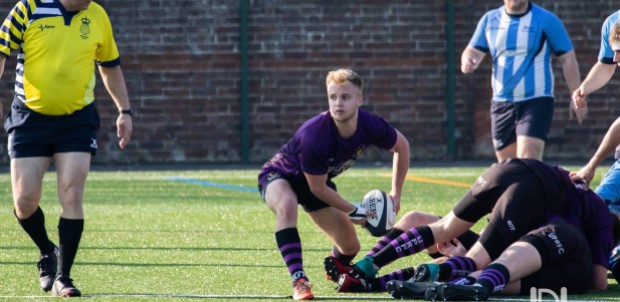Emily Winslade, one of last year’s first-year students, advises this year’s history freshers not to let Coronavirus put them off enjoying their studies and broadening their horizons.
Firstly, welcome to the University of Portsmouth! University is perhaps one of the most incredible adventures you will undertake as an adult. To begin with, it can seem a bit daunting which is quite understandable bearing in mind this is a brand new environment. In spite of this, once you are able to get settled, it is a fantastic opportunity to grow as a person and broaden your horizons.
You are perhaps tired of hearing about Coronavirus at this point, so I will only say this – while the effects of Coronavirus will be felt, the University is eager to continue to be a safe learning environment. With steps already in place, the University provides regular updates on the situation and how they will manage it, allowing you to focus on your studies. It will undoubtedly be a little different to what you were expecting, but won’t change the core aspects of your experience.
It may be alarming to think of how many people will be attending University, but when you are in class these numbers seem much less intimidating, and everyone is in the same boat as you. Speaking from experience, those around you are welcoming and friendly. Once you are in your tutor groups, the regular meetings also help you get to know your fellow classmates much better.
The way you are judged in terms of assessments is different to how you would have been assessed at school and college in that there will likely be few, if any, exams. Most assignments are essays of varying lengths in which you have deadlines but no other time limits (unless they are exam essays where you will have 48 hours to complete each one). This means assignments (in my opinion) are easier to manage – though don’t be discouraged if this is difficult at first, there is help available to you which I will explain in more detail later.
Another way of being assessed in history is through participation in seminars. You will be graded for each session and an average will be taken at the end of the year combined with the grades for your assignments. This score relies on preparation (prior readings and notes) and your opinions in the seminars. During school and college I was not one to speak out, but the small number of students in seminars along with often being split into even smaller discussion groups is extremely beneficial to self-confidence, and you might surprise yourself!
If you do find yourself struggling with the abrupt change from school and college to University – as I said it can be quite overwhelming, so there is nothing to be ashamed of – there are different ways in which you can get help. The lecturers are extremely approachable if you do not understand course content. If you need more individual advice there is the Learning Development Team (speaking from experience, they are a great help), and for mental health and wellbeing the Nuffield Centre offers different methods of support. At Portsmouth University, you’re not alone if you need help, and no one will make you feel ashamed for reaching out.
The facilities at Portsmouth University are also worth mentioning. The library is an excellent place to work as it gives you an opportunity in which you can focus on your work in different environments – bookable group study rooms, individual quiet areas, group booths and readily available computers and laptops, too name a few. There is also an indoor café and shop. In the library there are countless physical books and journals and even more online articles which you can access, not only in the library, but also from your own personal device.
As for history as a course, the modules you will study in your first year ensure you have a strong foundation of skills to think like a historian for your future at University. While the modules contain a wide variety of time periods (from early modern to present day) and places (from South America to Asia) there is also a focus on techniques to help you ask relevant questions about pieces of text and sources, helping you to assess what the source is portraying. These critical thinking skills will be applicable for most of the modules and sources, and will stand you in good stead for the future.
Finally, have fun! With unknown situations comes an opportunity for adventure, and honestly you might surprise yourself. The most important thing to remember is that you are not alone, and those around you are eager to offer help if you need it, in whatever way that might be. You already know history is a fascinating subject, but this course offers a whole new perspective!









